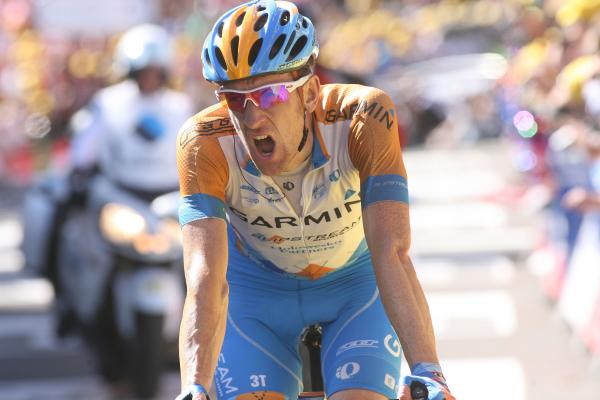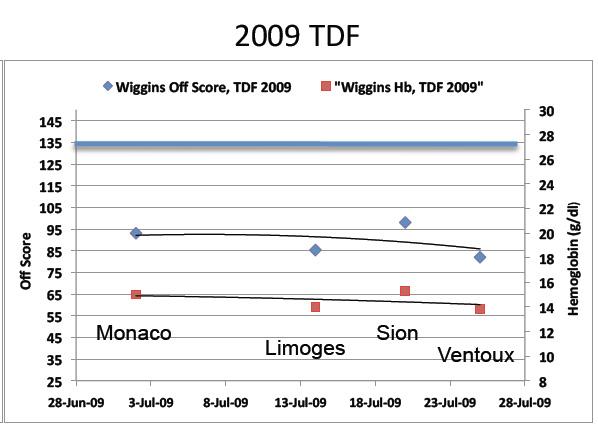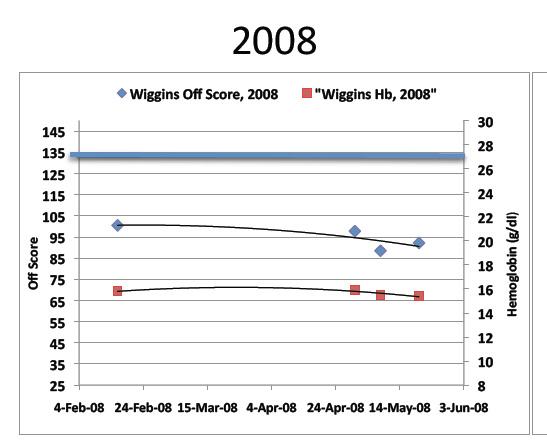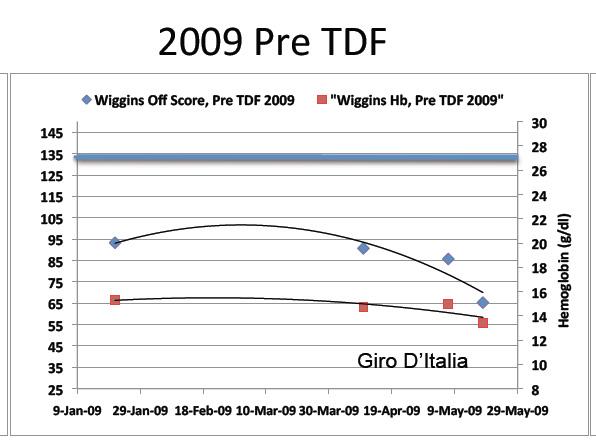Wiggins' values point to cleaner peloton
British rider makes blood profile public




Bradley Wiggins' blood profile from the Giro d'Italia and Tour de France may be proof of a cleaner peloton, according to the data released by Team Garmin-Slipstream today.Just days after the conclusion of the Tour, Wiggins' values for the period February 16, 2008 to July 28, 2009 were made public, the British rider's values well below the parameters potentially indicative of any artificial performance-enhancing methods.
Given this data, Wiggins' fourth-place finish in Paris tends to point towards a cleaner peloton in the face of doping scandals that plagued the 2006, '07 and '08 editions of the race.While haematocrit has traditionally been the value used to determine whether an athlete may be cheating, analysis of Wiggins' blood went further and looked at an 'Off Score', which takes into account haemoglobin concentration - which correlates to haematocrit - and the concentration of reticulocytes, or immature red blood cells in an athlete's system.The Off Score is calculated thus: Off Score = Haemoglobin - (60 x Square Root of Reticulocytes).
The Off Score was developed as a more robust measure because reticulocytes tend to decrease when haemoglobin is artificially high. The upper limit for the Off Score is 134; Wiggins' haemoglobin, hematocrit, and off score values were 14.93 ± 0.8 g/dl, 44.9 ± 1.9 %, and 89.4 ± 9.4, respectively, well below the cut off parameters that indicate potential artificial performance enhancement.The best indication that Wiggins rode clean is in the fact that his hemoglobin and Off Score values followed the same curve - according to the logic employed in the Off Score, if there was artificial performance enhancement occurring, the end of each curve would point in the opposite direction.
"Brad is an exceptionally talented athlete and it was great to see him do so well in the Tour de France. He’s always been an outspoken advocate of clean cycling. He requested that we release his results after the Tour and his decision makes me and the entire team proud," said Jonathan Vaughters, CEO of Slipstream Sports.
The results of the testing noted that, "the trend during the 2009 Giro d'Italia and the 2009 Tour de France was downward, indicating a drop in blood parameters over the course of each race," an encouraging sign that professional cycling may be making a transition to cleaner times.
Get The Leadout Newsletter
The latest race content, interviews, features, reviews and expert buying guides, direct to your inbox!